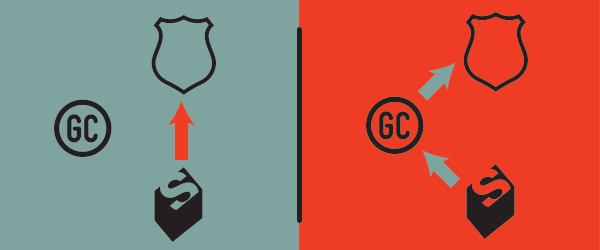CHALLENGER INSIGHTS Vol. 30:
Finding Funding, Part 2

Most of our prospective customers are challenged by funding facilities capital projects. We used to say, “Find the money; find the opportunity.” While it is still true that funding will lead you to opportunities, those who are actively involved with a project before the funding are in a much stronger position. Those who help their customers overcome challenges build loyalty with their customers.
Knowledge about the different types of funding makes you a resource for your prospective customers, sets you apart from other sales reps, builds loyalty with the customer, and helps you win more business — no matter how strong or weak the current economy.
Types of Funding
- Capital Budgets: funds built into the annual budget for capital projects. These funds may come from other sources such as bonds and special taxes.
- Municipal Bonds: bonds are sold to finance government projects by providing money upfront with a long term pay back of the bonds.
- Grants: some federal and state departments offer grants for law enforcement, such as Department of Justice Assistance Grants.
- Task Force: some task force operations will seize cash and property which may be released to the law enforcement agency.
- Property Auctions: unclaimed evidence and found property may be auctioned. Most often, those funds go to the General Fund of the local government, but some law enforcement agencies have requested that money be used for law enforcement use.
- Municipal Leases/Financing: financing option specific to government agencies with shorter pay back terms than bonds.
- Public-Private Partnerships: private investors build a facility which is leased by local government for a specified time period.
- Special Tax: a ballot initiative to levy a specific tax for capital projects.
- Fundraising/Crowd Sourcing: local groups open a crowdfunding or fundraising initiative to support law enforcement in their area.
Ask your lead contact how they’re planning to fund the project. Sometimes you get a direct answer, such as, “We have funds from a drug task force seizure.” If they aren’t sure where the funding will come from – or if the funding will even come through – don’t shy away from the project. A good survey and interview with a lead should define the scope of the challenge and a solution concept. It is much easier to gain support and find funding for a project which has a defined problem, solution, and budget requirement.
Look for incremental solutions. When budgets are built, a certain amount of funds are reserved until year end for contingencies. Having a solution built in increments may get funded by several sources, including remaining year-end funds. Plus, smaller increments have fewer procurement restrictions which can allow the sale to close and pay quicker than a larger project.
Ask your contacts who knows a lot about funding. You can gain a lot of knowledge from someone who has experience with funding. Finance and Budget offices are good places to find these contacts, and it helps to have the referral of the end user.


 Vacuum Seal Bags
Vacuum Seal Bags Hanging Inmate Property Bags
Hanging Inmate Property Bags Cons: Items tend to bunch at the bottom and it is difficult to gain density of storage for hanging bags. In the photos, you can see the wasted space above and below the bags.
Cons: Items tend to bunch at the bottom and it is difficult to gain density of storage for hanging bags. In the photos, you can see the wasted space above and below the bags. Inmate Property Bags on an Open Shelf
Inmate Property Bags on an Open Shelf Plastic Bins for inmate property
Plastic Bins for inmate property

 Putting together the building blocks
Putting together the building blocks



